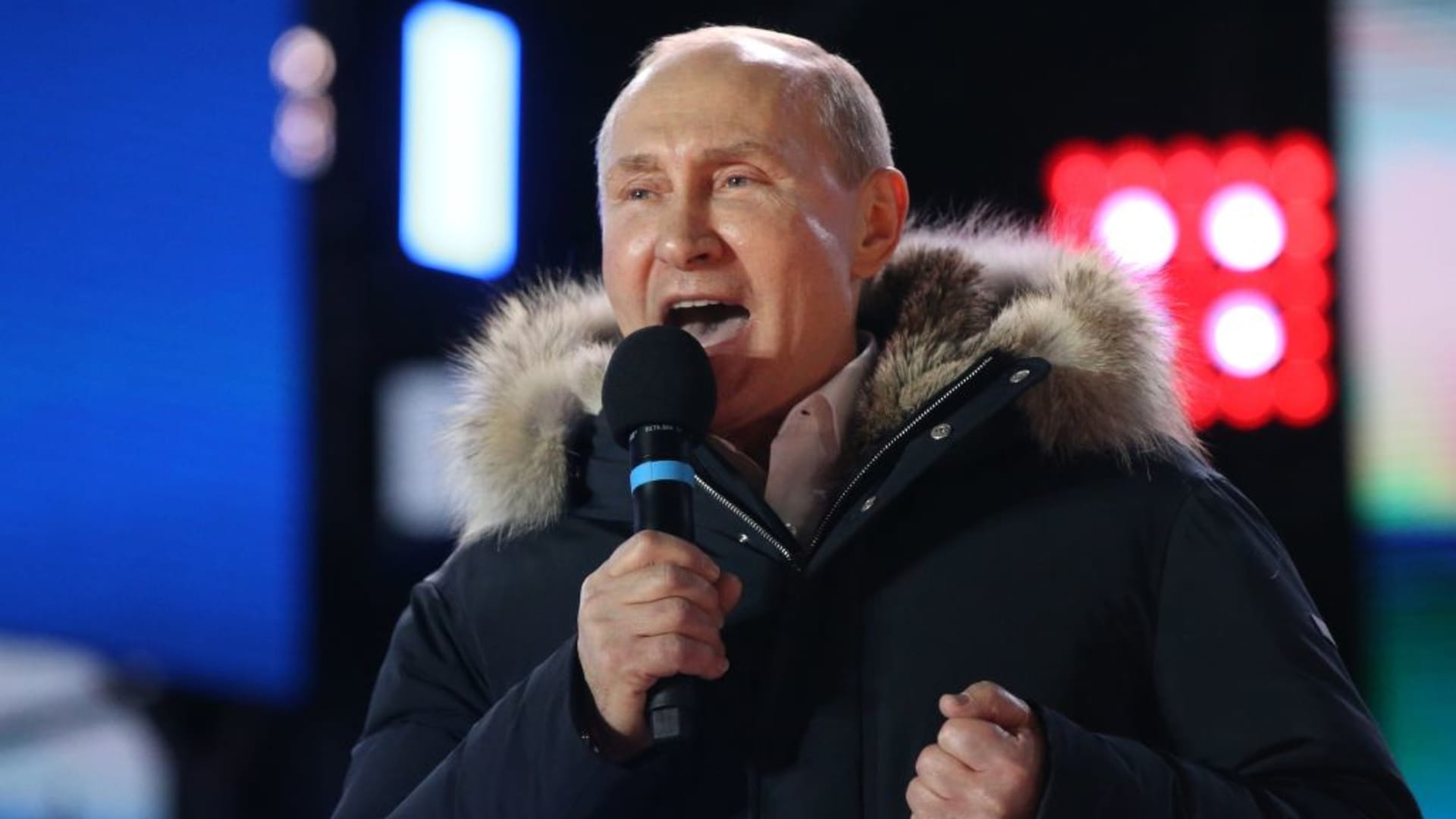Vladimir Putin at a rally at Manezhnaya Square near the Kremlin on March 18, 2018.
Mikhail Svetlov/Getty Images
There are no surprises over who will win Russia’s presidential election this coming weekend with incumbent, Vladimir Putin, set to win a fifth term in office, keeping him in power until at least 2030.
The heavily stage-managed vote taking place from Friday to Sunday is not expected to throw up any nasty surprises for the Kremlin which told CNBC months ago that it was confident Putin would win the vote comfortably.
That’s particularly the case in a country where Russian opposition figures are not represented on the ballot paper or in mainstream politics, with most activists having fled the country. Those that have stayed have found themselves arrested or imprisoned or have died in mysterious circumstances, as was the case with jailed opposition leader Alexei Navalny. The Kremlin denied it had any hand in his death.
In the 2024 election, there’s no doubt who will win the vote; Putin’s name is on the ballot paper along with only three other candidates who are part of Russia’s “systemic opposition”: Vladislav Davankov of the New People party, Leonid Slutsky from the Liberal Democratic Party (LDPR) and Communist Party candidate Nikolay Kharitonov.
Seen as token political opponents whose parties are generally supportive of the government, their inclusion on the ballot paper is designed to lend a degree of respectability to the vote, and a semblance of plurality to Russia’s effectively autocratic political system.
Putin has been in power either as president or prime minister since late 1999 and shows no sign of being ready to relinquish control of the country. He’s backed by a loyal inner circle and retains the support of Russia’s security services.
Reflecting the Kremlin’s nervousness over any potential for an electoral upset, however, even candidates who were only marginally representative of the “non-systemic opposition,” such as anti-war hopefuls Yekaterina…
Read the full article here

Leave a Reply